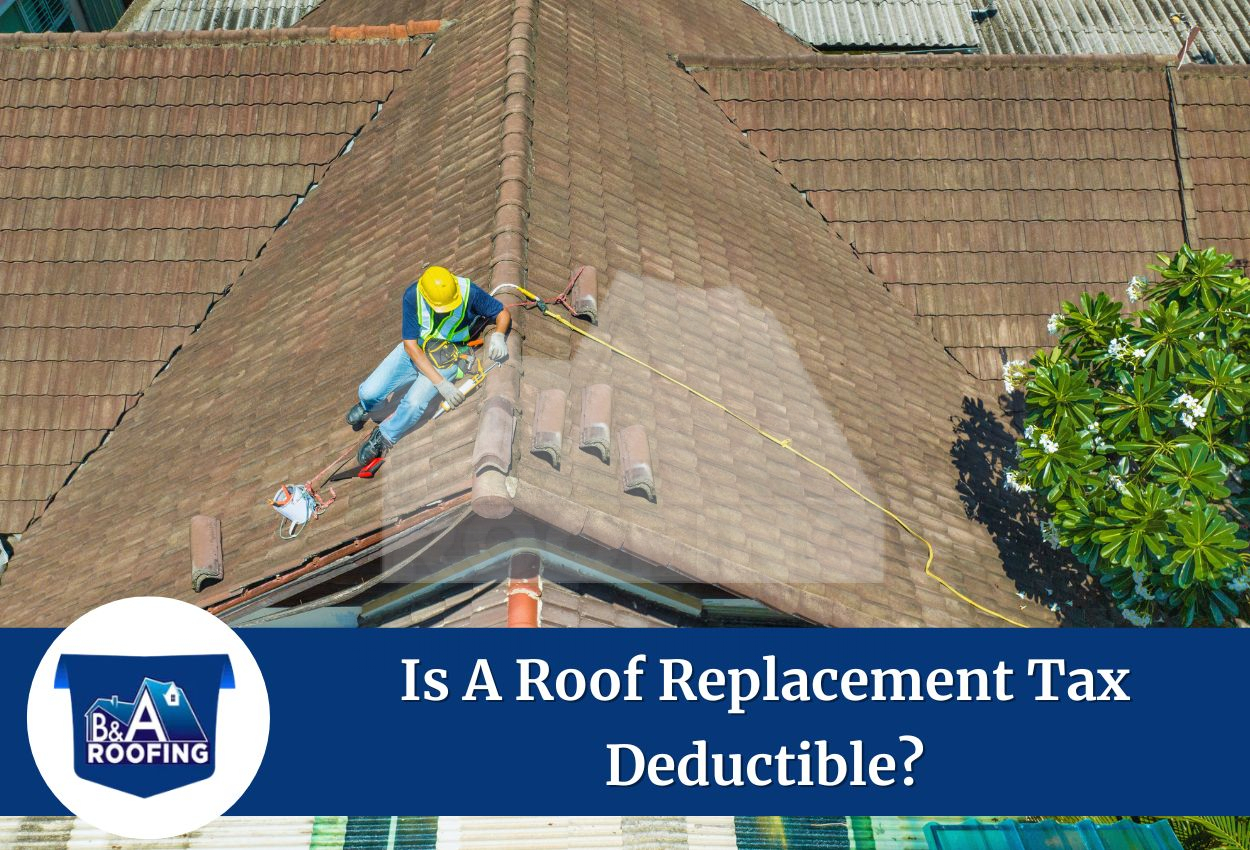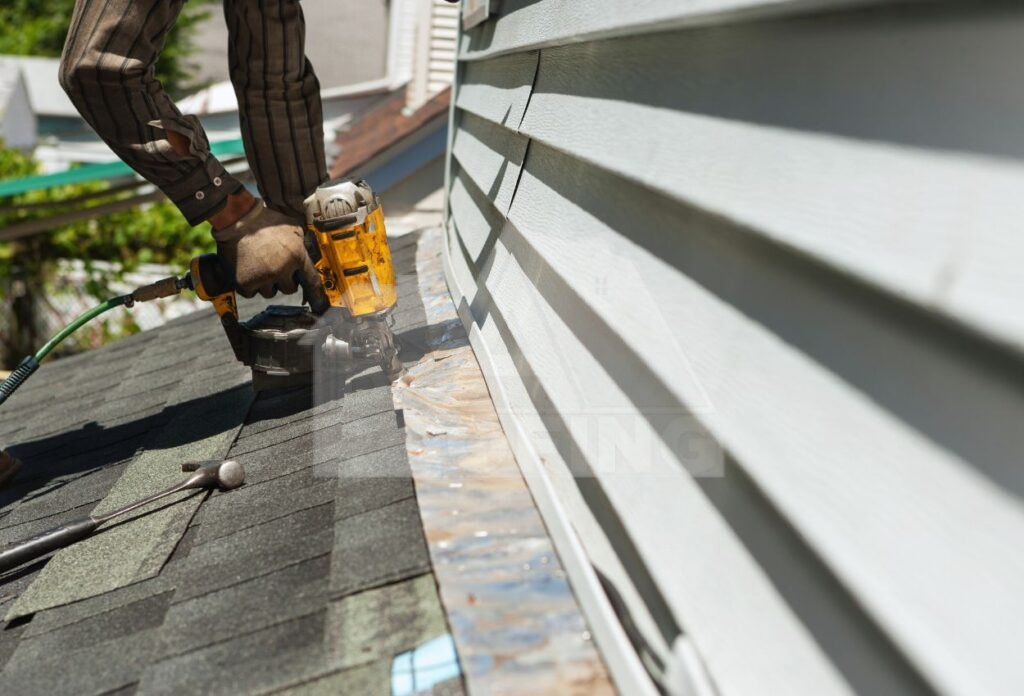Instant Roof Quote
 ×
×
South MS: (601) 520-3183
North MS: (662) 636-7663
North AL: (256) 692-5527
Meridian, MS: (601) 841-3218
Do You Need To File An Insurance Claim
Posted on December 19, 2024

Roof replacement is a significant investment in the aesthetic appeal and durability of your home. But, while doing so, we often get asked, “Is a roof replacement tax deductible?” If you’ve been wondering the same, you’re not alone! Understanding the tax implications of replacing your roof can help you make informed decisions about your finances.
In this guide, we’ll break down what you need to know about tax deductions for a new roof and help you figure out whether you can lower your taxes after a roof replacement.
A tax deduction is an expense that reduces your taxable income, which in turn lowers the amount of tax you owe to the government. When it comes to home improvements like roof replacements, whether you can claim a deduction depends on several factors, including the purpose of the roof replacement and the nature of the property.
Qualifying for a tax deduction has many benefits and can save you money over time.
👉Save Money: A tax deduction helps you to reduce the overall cost of the project through deductions, depreciation, or tax credits.
👉Maximize Tax Advantages: It also helps you to take advantage of energy-efficient upgrades during a roof replacement.
However, remember to properly report expenses for rental or business properties to avoid issues with taxes.

There are several scenarios where a roof replacement can be tax deductible, including:
If you use part of your home exclusively for business purposes, you may be able to deduct a portion of your roof replacement costs. The IRS allows deductions for expenses related to the business use of your home, including maintenance and repairs. For example, if your home office occupies 10% of your total home space, you could potentially deduct 10% of the roof replacement cost as a business expense.
If you own rental properties, the costs associated with maintaining those properties, including roof replacements, can often be deducted. However, it’s important to note that you typically cannot claim the entire cost in one year; instead, you would depreciate the expense over several years. For instance, if you spend $15,000 on a new roof for a rental property, you would spread that cost over its useful life (usually around 25 years for residential rental properties), allowing you to deduct approximately $545 each year.
Roof replacement costs are generally not deductible in the same year they are installed on your home. But they can escalate the price of your home when you resell it while reducing the capital gains tax liability. For primary residences, they can be considered capital improvements.
For example, if you bought your home for $200,000 and later replaced the roof for $10,000, your adjusted basis would be $210,000. If you sell the home for $300,000, you would only pay capital gains tax on the difference between the selling price and your adjusted basis.
If your roof gets damaged from any natural disasters or accident, you can always file for an insurance claim that covers the replacement cost. Any out-of-pocket expenses that aren’t refined by insurance may be deductible as casualty losses on your taxes.
If you’re upgrading to an energy-efficient roof, you may qualify for a tax credit rather than a deduction. Tax credits directly reduce the amount of taxes you owe, which can be even better than a deduction.
Under the Residential Clean Energy Credit (formerly known as the Energy Efficiency Tax Credit), you could claim a portion of the cost for energy-efficient roofing materials. For example:
👉Roofing materials that meet Energy Star® standards
👉Solar panels or other renewable energy systems installed alongside your roof
Keep your receipts and documentation handy to claim these credits when you file your taxes.
Another way roof replacement can offer tax benefits is through capital gains tax adjustments. If you sell your home, you may owe capital gains tax on the profit. However, the IRS allows you to add the cost of home improvements, like a new roof, to your home’s basis (its original cost).
This can reduce your taxable gain when you sell your house. To qualify:
👉Keep detailed records of your roof replacement, including the contractor’s name, date, and total cost.
👉Ensure the improvement adds value to the property and isn’t just a repair.
While there are instances where you may be able to deduct the cost of a roof replacement, most cases do not qualify.
Replacing the roof on your primary residence generally isn’t deductible unless you incorporate energy-efficient upgrades. If you invest in materials that enhance energy efficiency, you may qualify for certain tax credits, but standard replacements without these features won’t provide any immediate tax relief.
Patching leaks or replacing shingles and other maintenance jobs are considered routine repairs. Even though this is an expensive affair that helps you maintain your roof, it won’t qualify for tax deductions. They are essential for maintaining your home but won’t provide any tax benefits.
If you’re considering bringing any cosmetic changes to your roof that don’t enhance its efficiency or lifespan, those costs won’t be deductible either. For example, simply changing the color of your shingles or adding decorative elements may improve aesthetics but won’t add value in terms of tax deductions.
Here are some tips to make sure you take full advantage of potential tax savings:
Selecting roofing materials that qualify for federal tax credits can make a big difference. Energy-efficient roofs not only help reduce your energy bills but may also earn you significant tax credits.
Make sure to save all invoices and receipts related to your roof replacement. Accurate record-keeping is essential for claiming any deductions or credits when tax season rolls around.
As tax laws are different in all states, consulting a tax expert is a smart move for homeowners. They can guide you through the specific deductions available based on your situation while making sure you take full advantage of potential savings.
Even if the cost of roof replacement isn’t immediately deductible, it can increase your home’s resale value in the future and help you save a lot of money on future repairs. A new roof also enhances curb appeal and provides peace of mind.
So, is a roof replacement tax deductible? In most cases, the answer depends on the purpose of the replacement and the materials you use. While it might not be deductible as a simple expense, energy-efficient upgrades or selling your home can unlock financial benefits. If you’re planning a roof replacement and need expert advice, B & A Roofing and Gutters can help. Call us today at (601) 520-3183 for a consultation.
Don’t see your location? Call us! We Likelt serve your area too